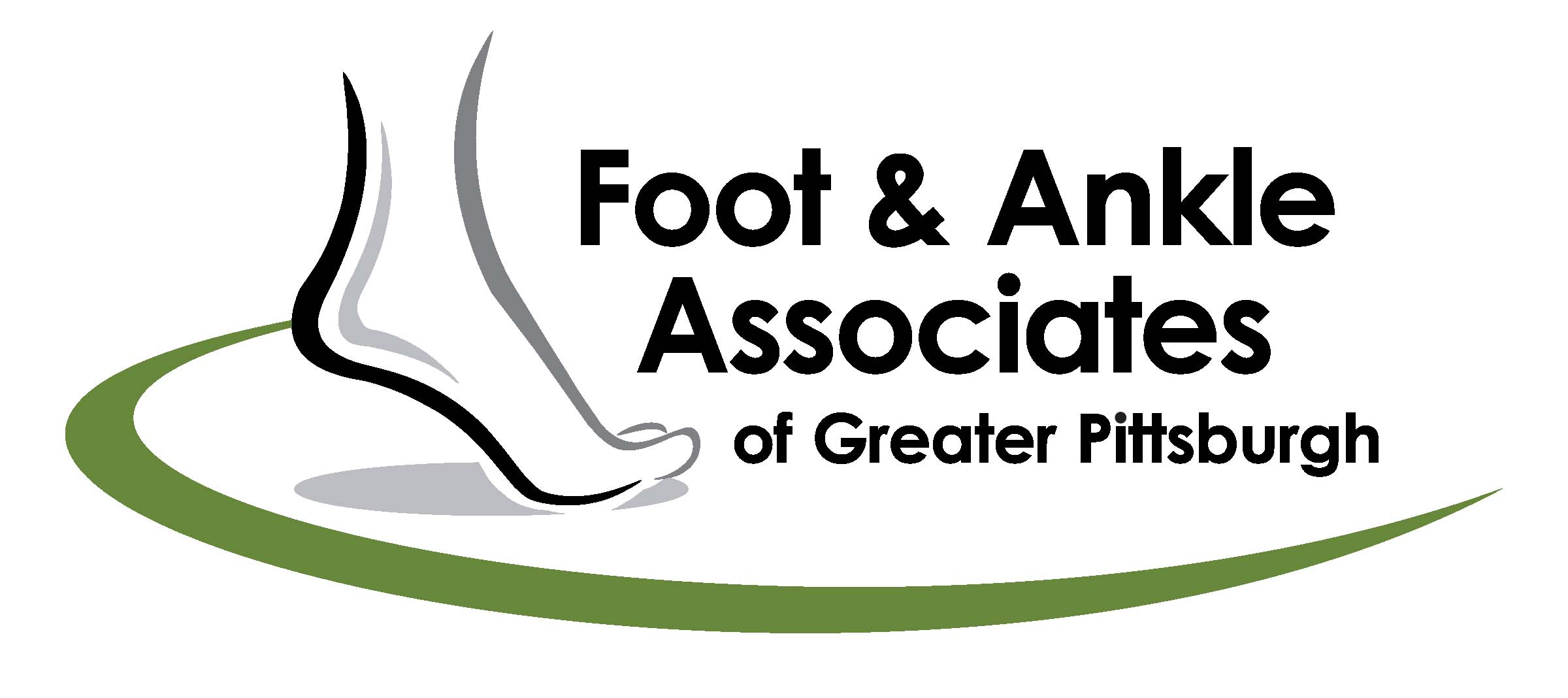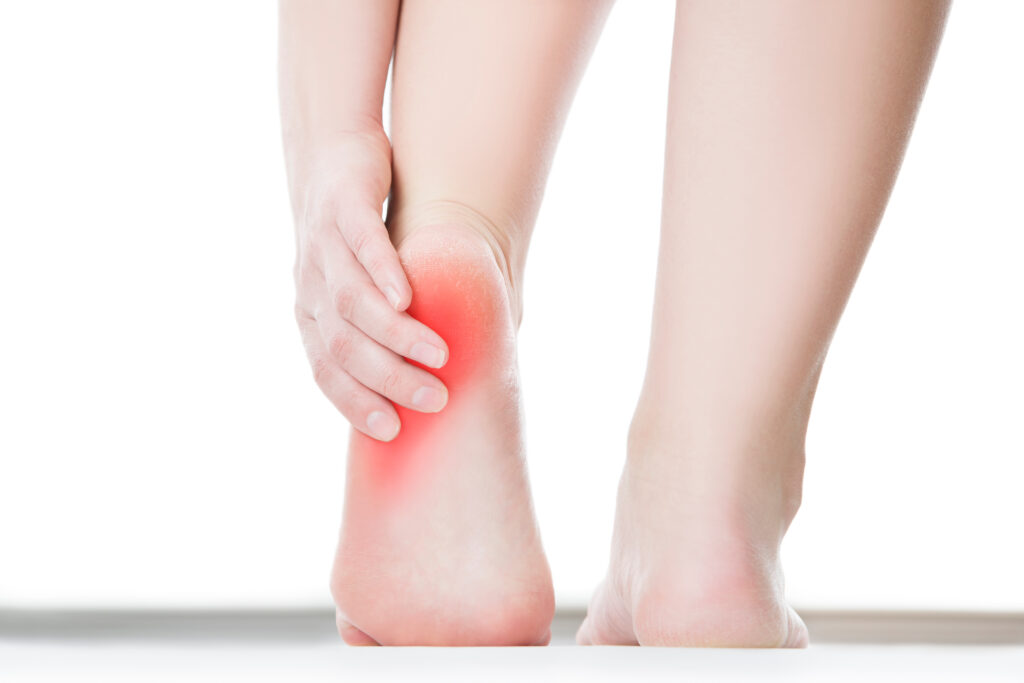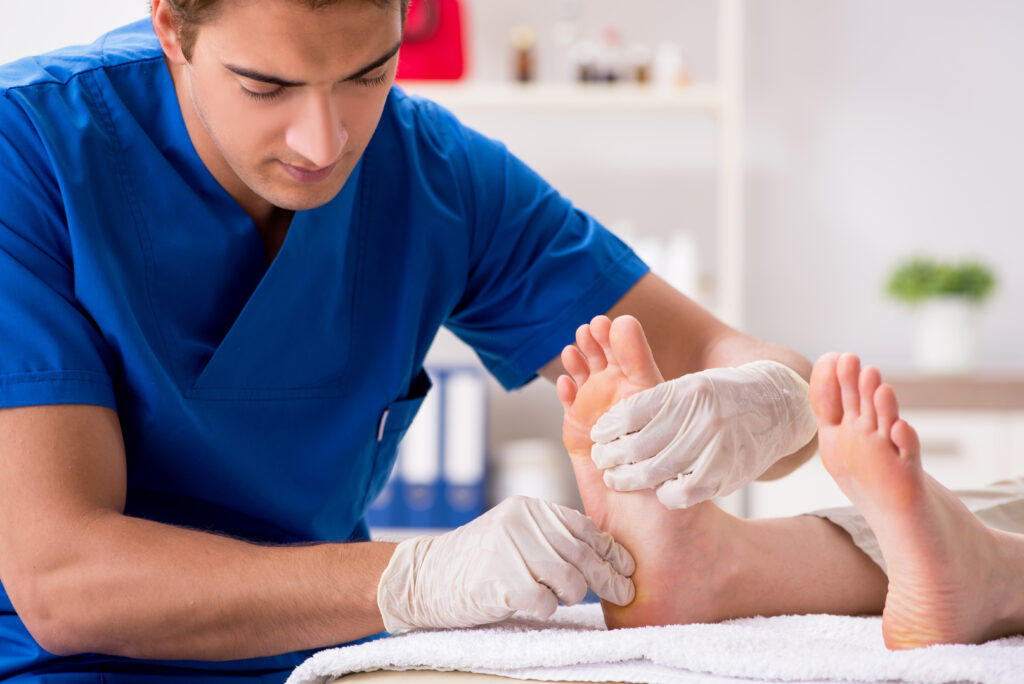Heel Pain
Pain in your heel can be a persistent and uncomfortable nuisance. It often makes it difficult to participate in activities you enjoy and may even impair your ability to carry out everyday tasks. At Foot and Ankle Associates of Greater Pittsburgh, we understand how disruptive heel pain can be and are dedicated to helping our patients find relief from their condition.
What Causes Heel Pain?
There are many possible causes of heel pain. The most common include:
- Plantar Fasciitis – This is inflammation of the thick band of tissue that runs across the bottom of your foot (the plantar fascia). The pain is often the worst early in the morning and when standing up after sitting or lying down. It often feels like a stabbing or burning sensation in the heel area.
- Achilles Tendinitis – This is an inflammation or irritation of the tendon that connects your calf muscles to your heel bone (the Achilles tendon). The pain is usually felt along the back of the heel but may also spread up the leg into the calf muscle. It often worsens with activity and improves with rest.
- Heel Spurs – Heel spurs are bony growths on the underside of the heel bone. A spur on the bottom of your heel is most often caused by chronic plantar fasciitis and is treated in conjunction with plantar fasciitis.
- Haglund’s Deformity – This condition affects adults who have an enlargement at the back side of the heel bone (the “pump bump”). This enlargement can rub against shoes, causing discomfort and sometimes painful inflammation at the back of the heel. It can eventually damage the Achilles tendon if severe and left untreated.
- Sever’s Disease – This overuse injury primarily affects adolescents who are involved in a lot of running or jumping sports. It occurs when repeated stress causes inflammation in a growth plate at the back of their heels, resulting in pain at that site.
- Baxter’s Neuritis – This is inflammation of a nerve on the bottom of your foot. It mimics plantar fasciitis pain but luckily, they both respond to similar treatments.
How Do We Treat Heel Pain?
At Foot & Ankle Associates, we believe that no two patients are alike; therefore, we develop customized treatment plans based on individual needs and preferences for our patients suffering from heel pain. Treatment options may include:
Rest
Taking a break from activities that cause discomfort can help alleviate symptoms associated with heel pain by giving tissues time to heal correctly without further aggravation. We will typically advise you to limit your physical activities until your symptoms improve substantially before gradually increasing your exercise intensity over time as tolerated by your body.
Pain Medication
For mild cases, over-the-counter medications such as ibuprofen or acetaminophen may be enough to provide temporary relief from the pain associated with heel pain but do not treat its underlying cause(s). If necessary, stronger prescription medications may also be prescribed as part of a treatment plan tailored specifically to your needs.
Custom Orthotics
Custom orthotics are special shoe inserts designed according to individual foot shape through a molding process which allows proper alignment function during walking by providing a cushion effect on certain areas needing alleviation on pressure points.
Physical Therapy
Physical therapists can help you restore natural movement, improve your range of motion, and strengthen your legs and feet muscles. Common methods to treat heel pain include stretching exercises that target the arch, heel, calf, and hamstrings; ice or heat application to reduce inflammation in the area; balance training; muscle strengthening techniques; iontophoresis, orthotic modifications or bracing; and footwear advice.
Corticosteroid Injections
Corticosteroid injections directly target inflamed areas, reducing swelling while minimizing discomfort, allowing you to return to daily activities without fear of further complications such as re-aggravating irritating factors. This will lead to faster recovery times overall.
Surgery
The vast majority of patients do not require surgery for plantar fasciitis. If you have failed conservative therapy, and elect to proceed surgically, an endoscopic procedure is performed to relieve tension on the portion of plantar fascia that is inflamed.
Contact Us Today!
At Foot & Ankle Associates of Greater Pittsburgh, we strive to provide personalized care focused on finding effective solutions and improving your quality of life so you can get back to enjoying activities you love quickly and effectively with minimal disruption possible.
Call us today at (724) 774-1525 or fill out our contact form if you are suffering from heel pain or any other kind of foot/ankle condition. You can get your feet back to health with the help of Dr. Peter Harper and Dr. Kristin Harper.
Contact Us
Office
336 College Avenue, Suite 106, Beaver,
PA , 15009
Monday: 8am – 12pm
Tuesday: 8am – 4:30pm
Wednesday: 8am – 4:30pm
Thursday: 8am – 4:30pm
Friday: 8am – 12pm
Saturday: Closed
Sunday: Closed


